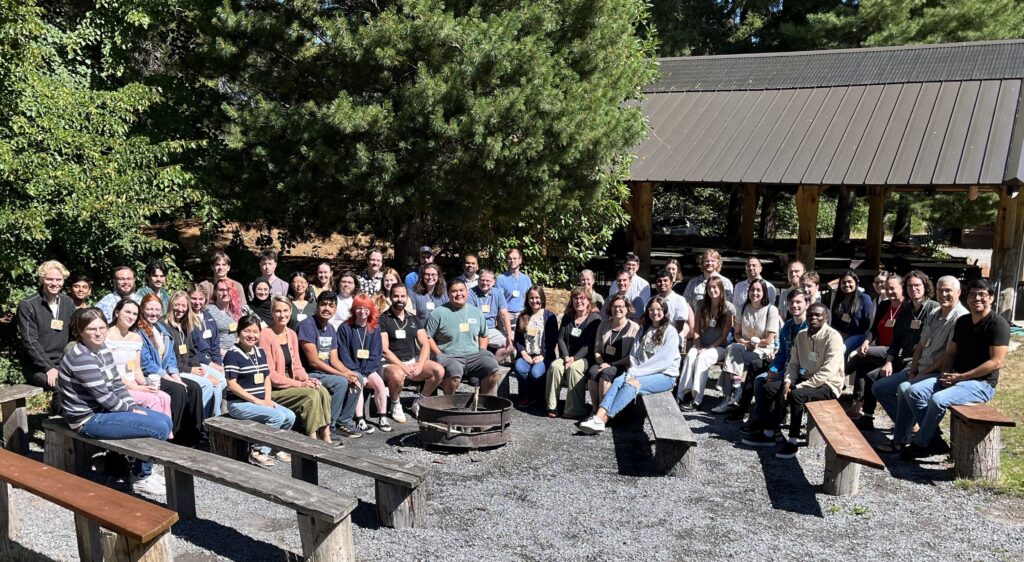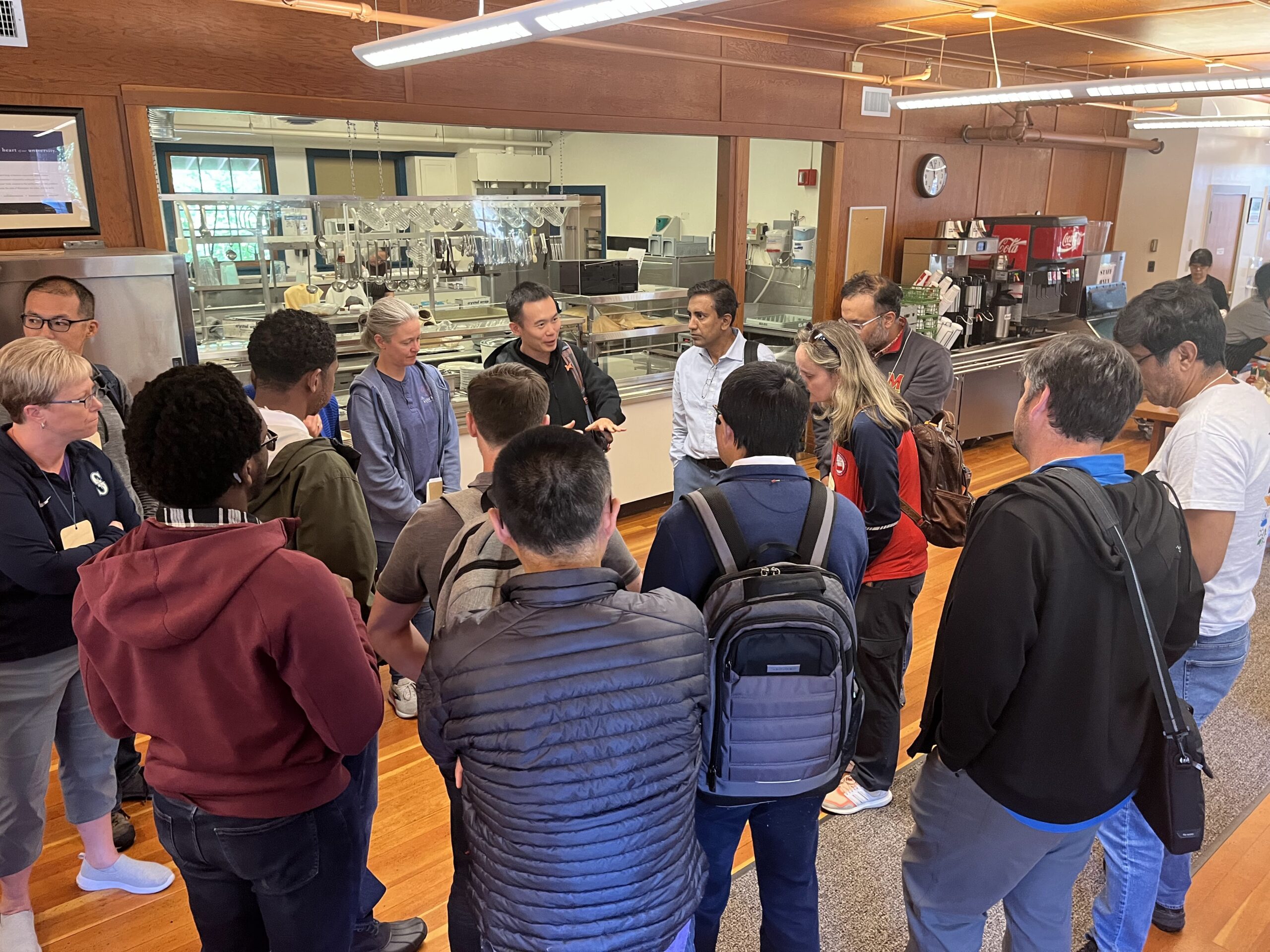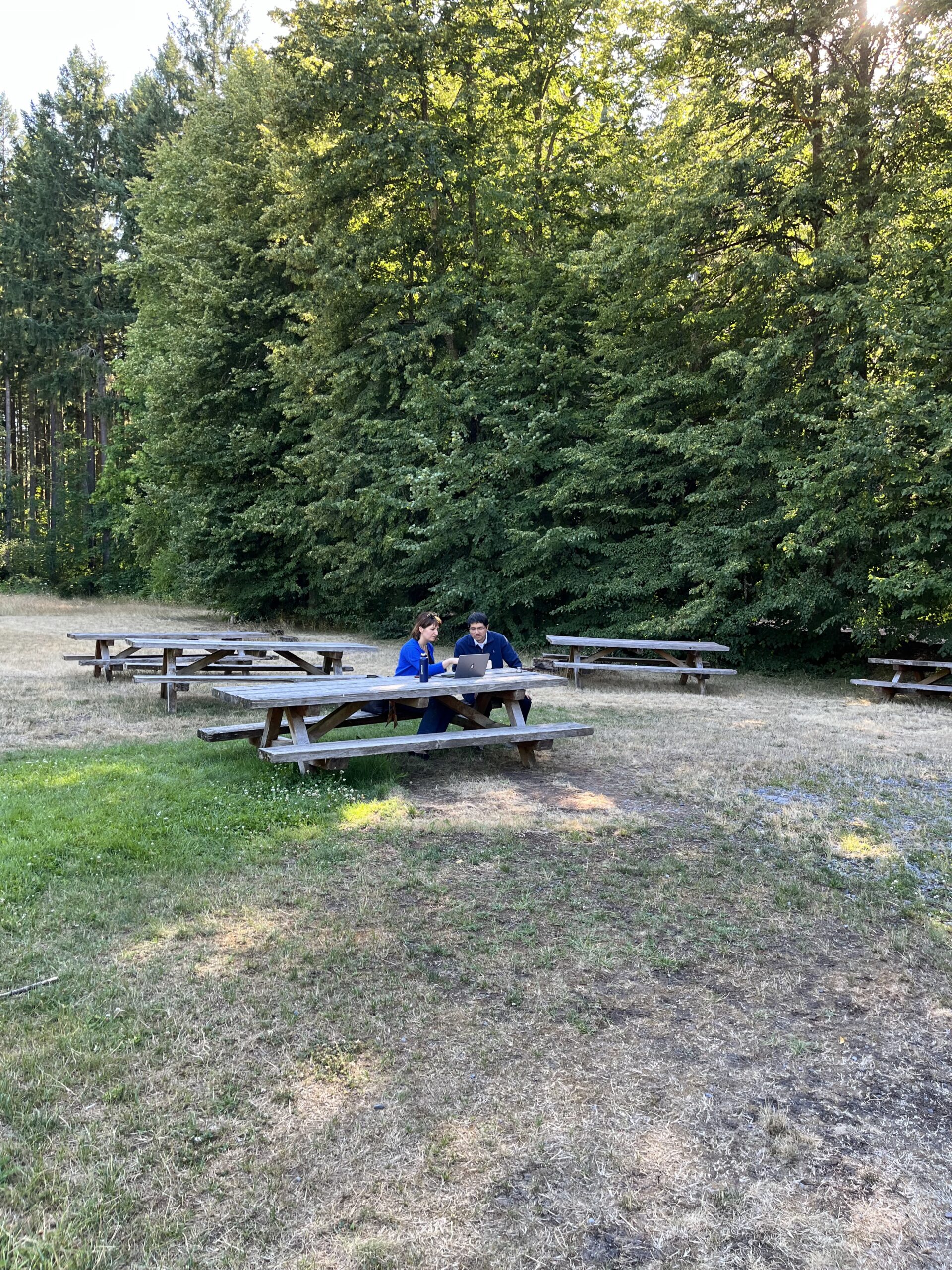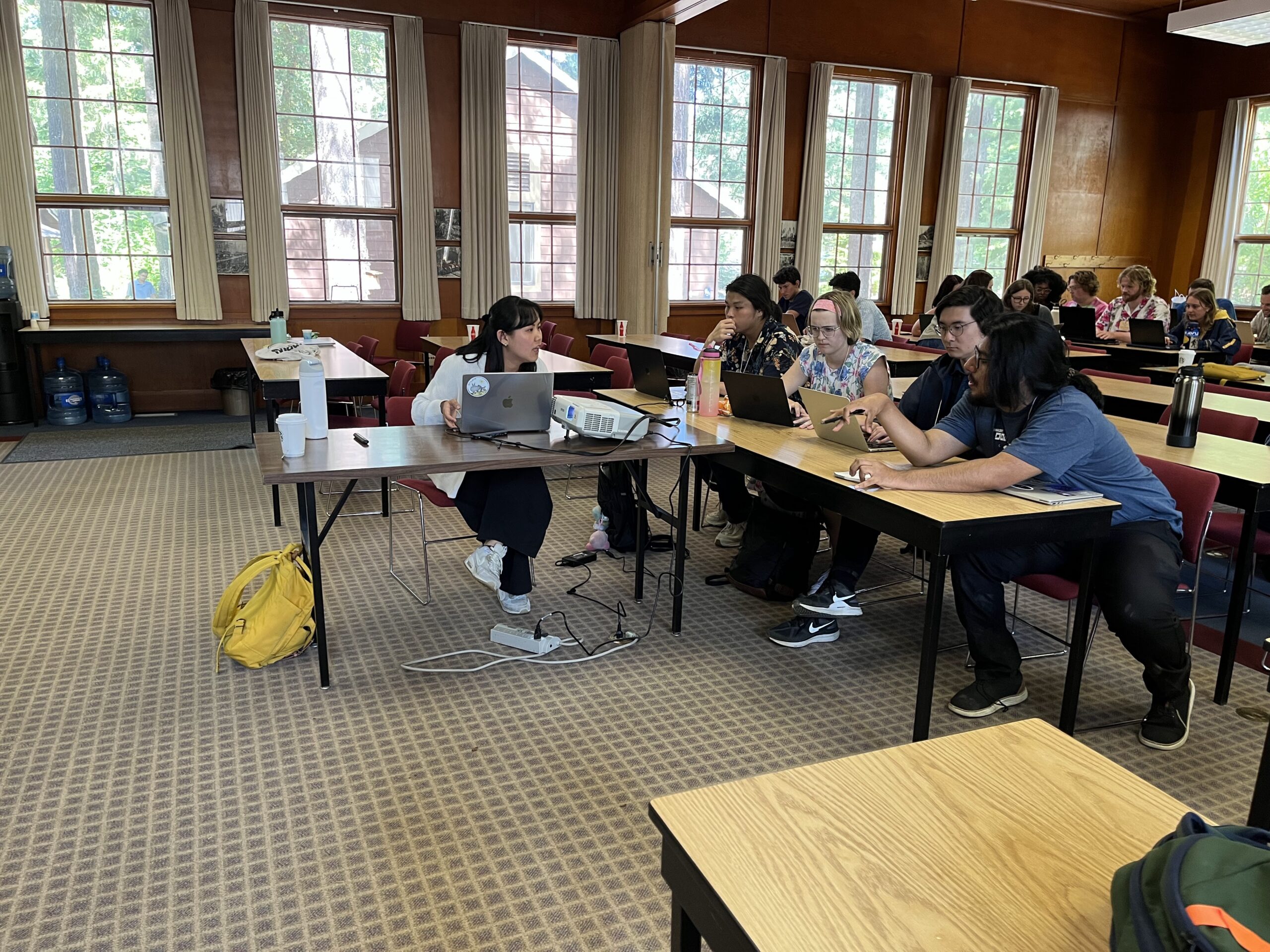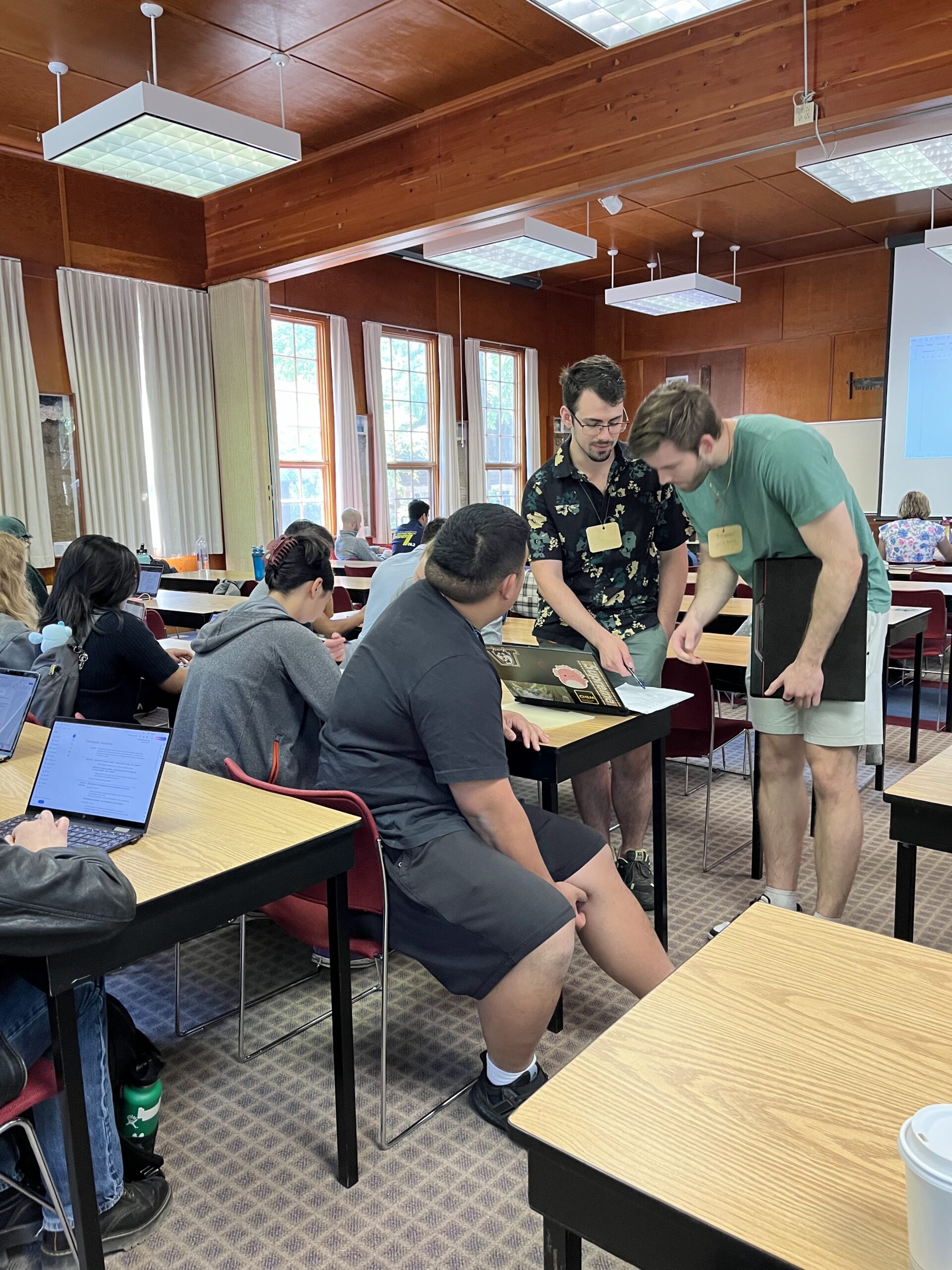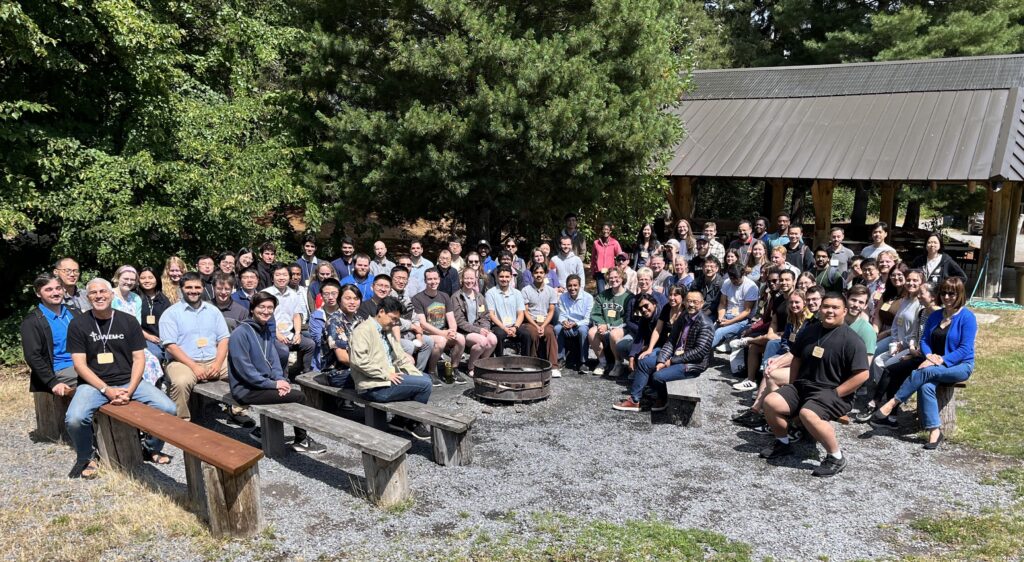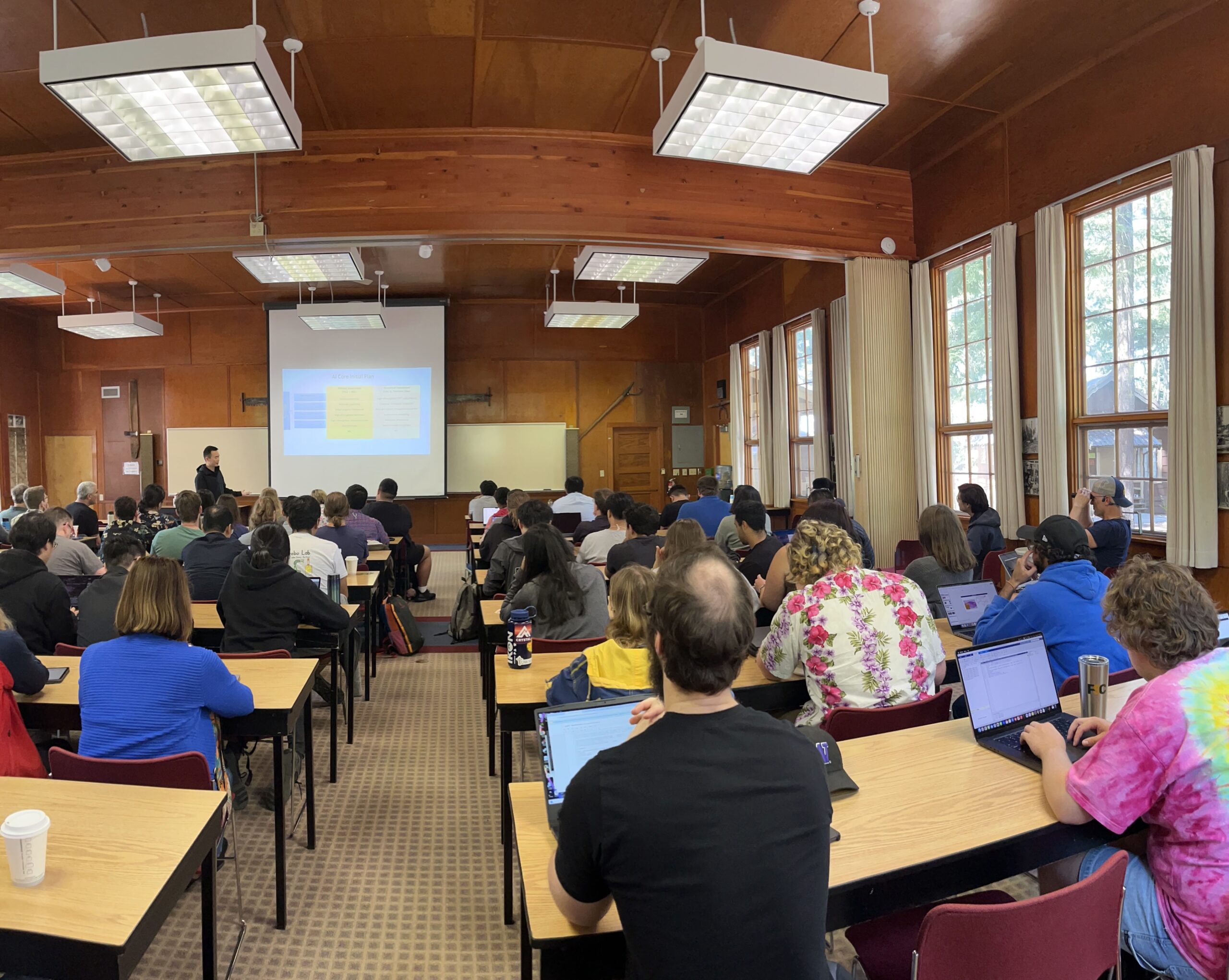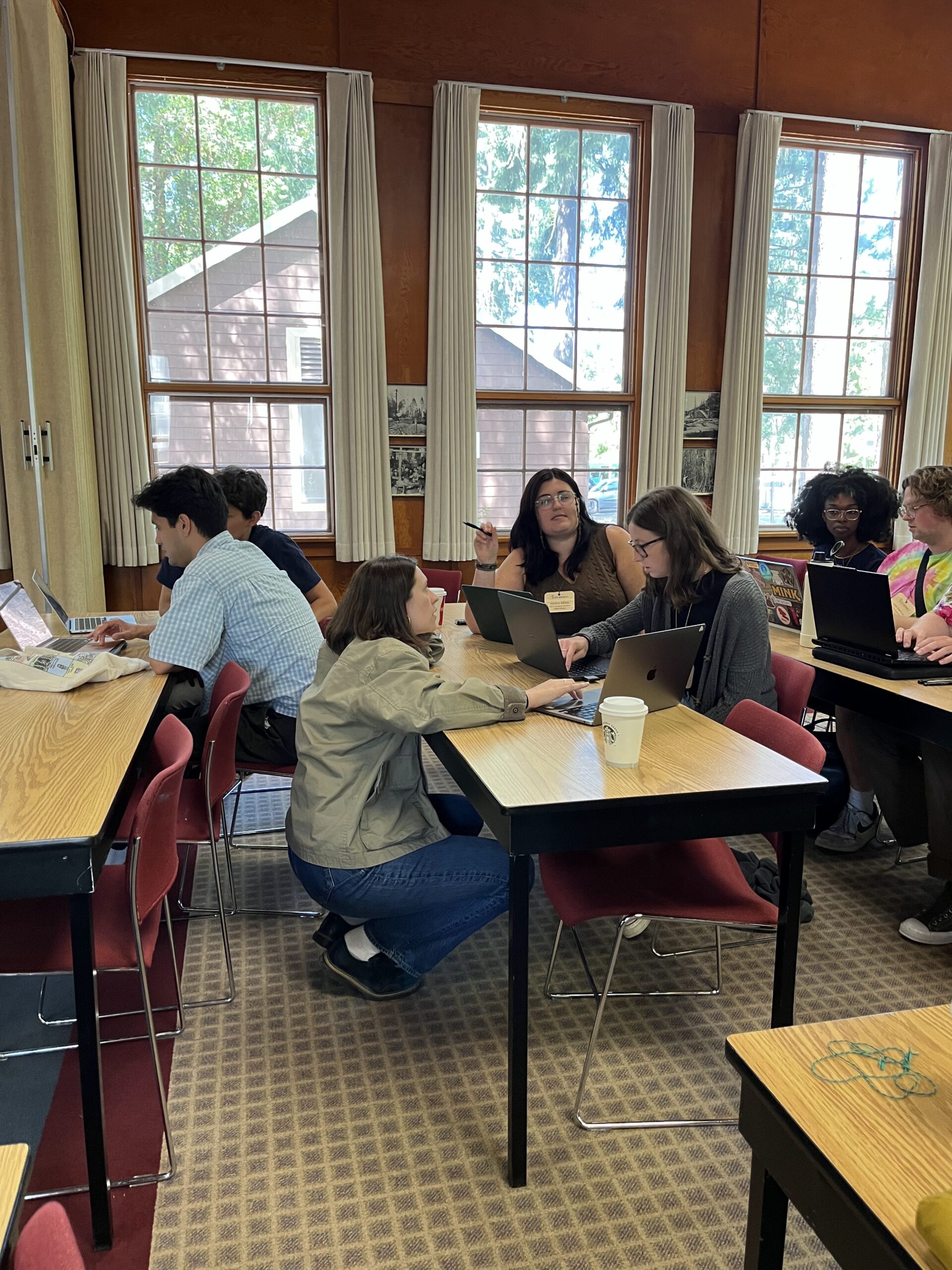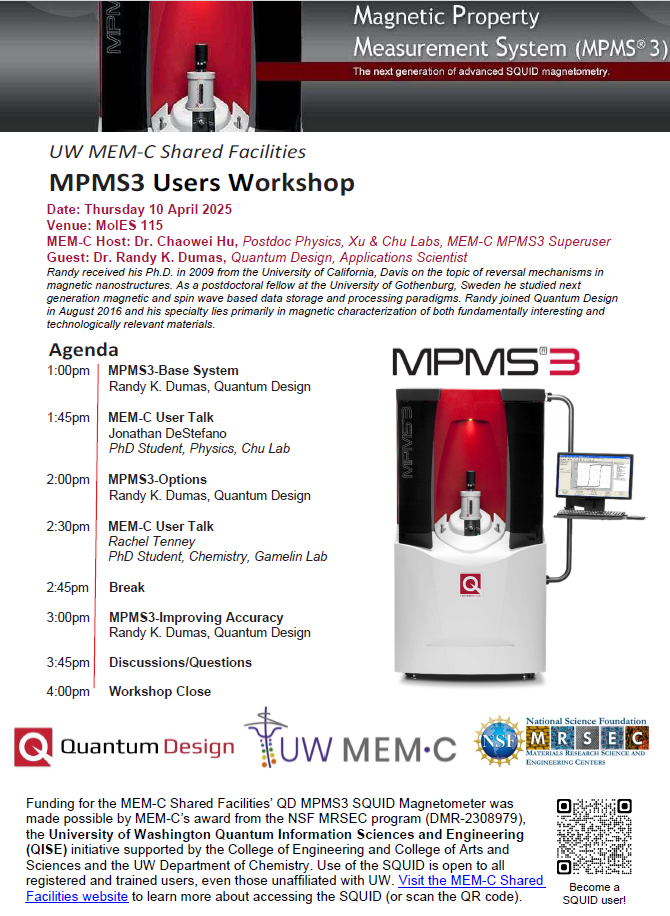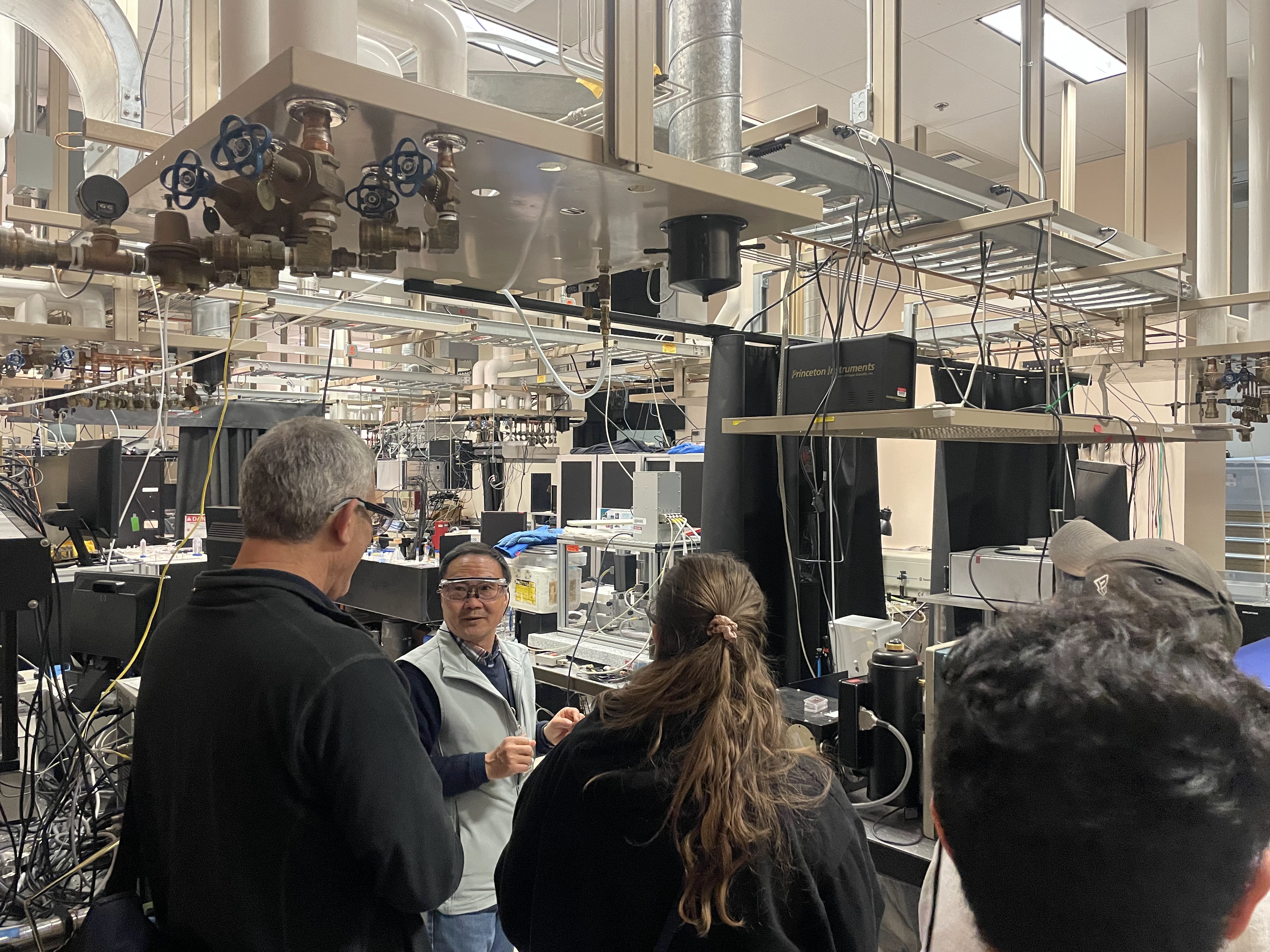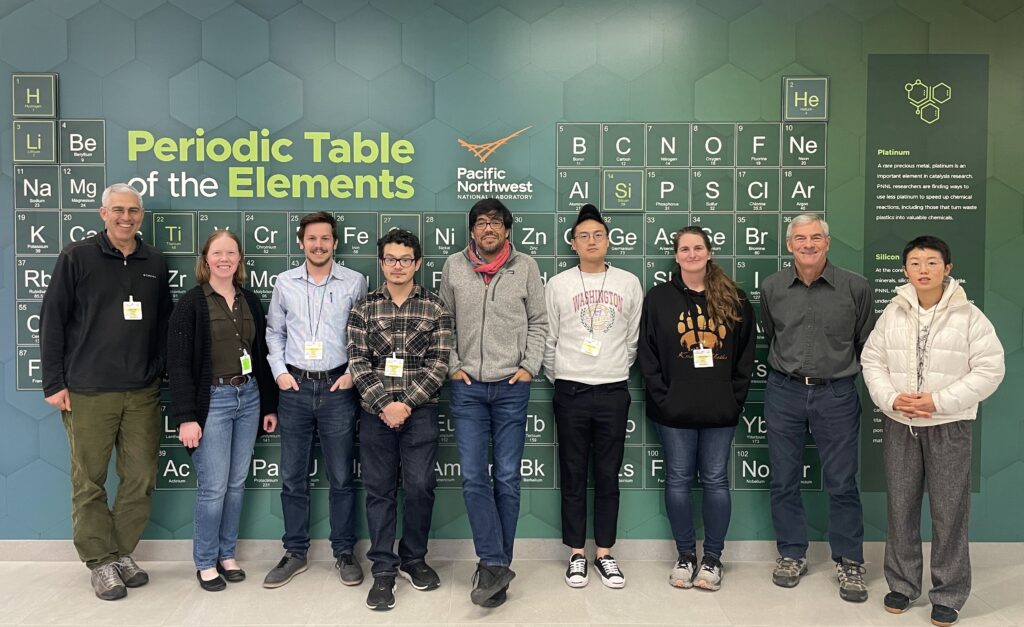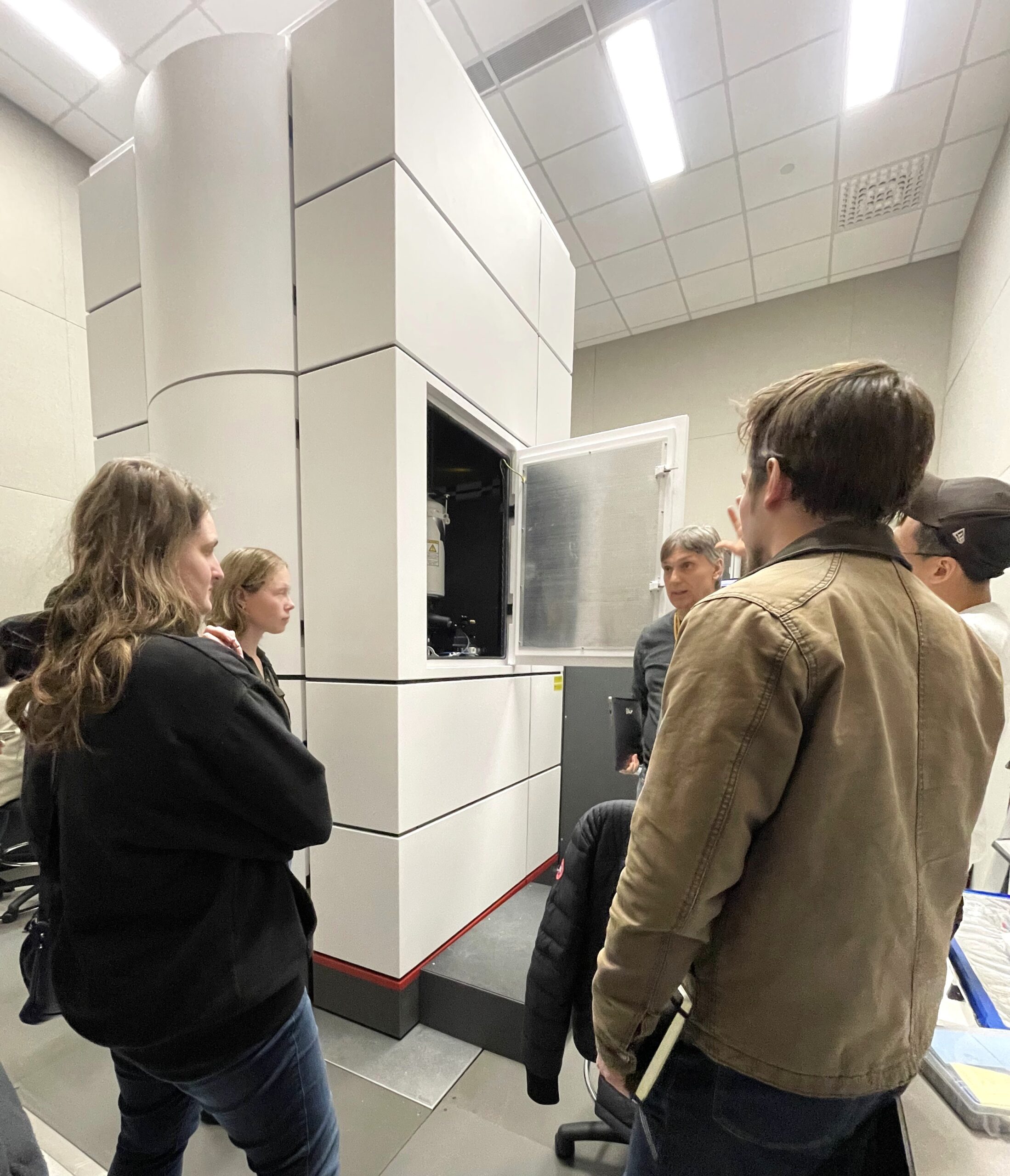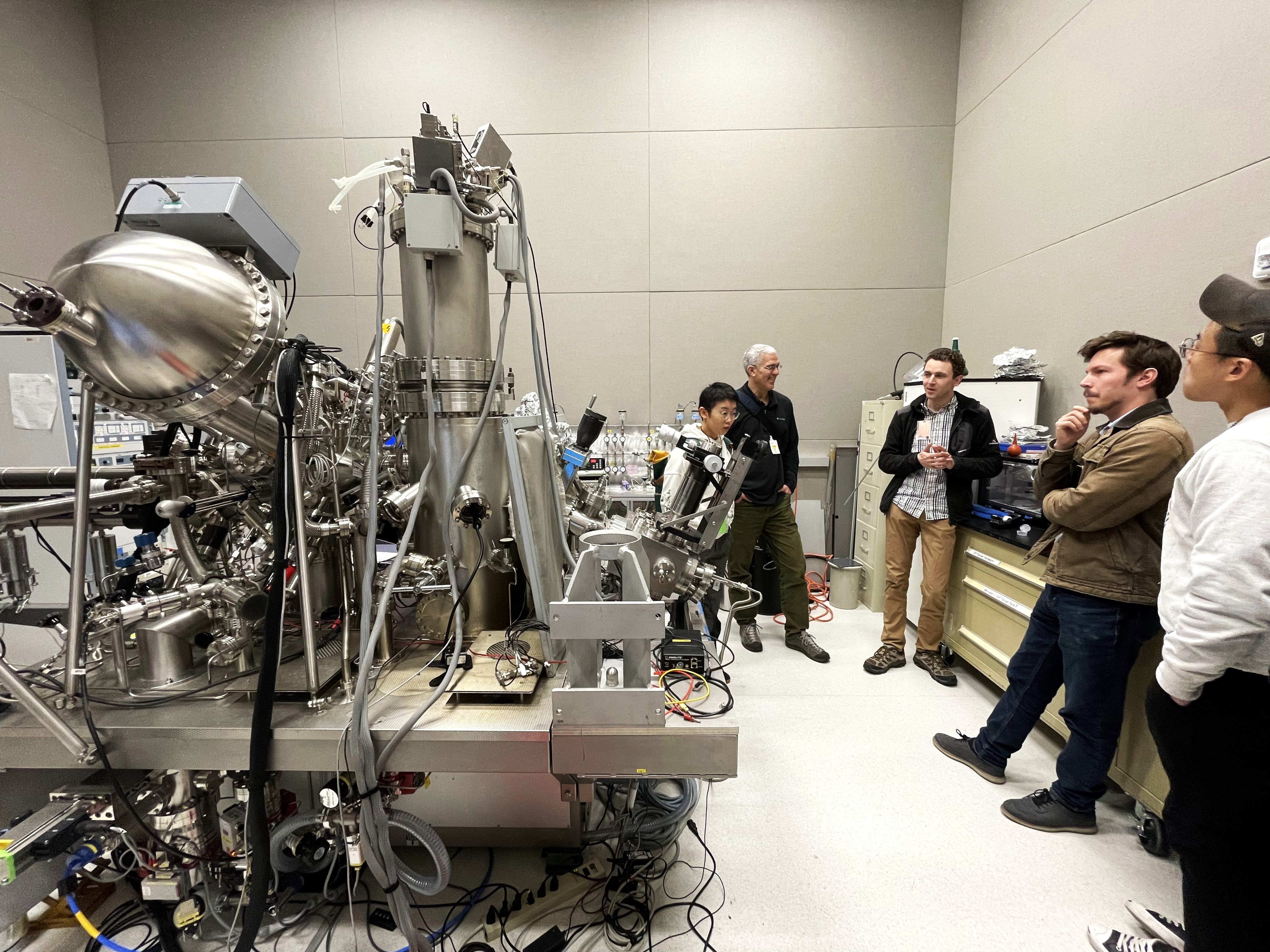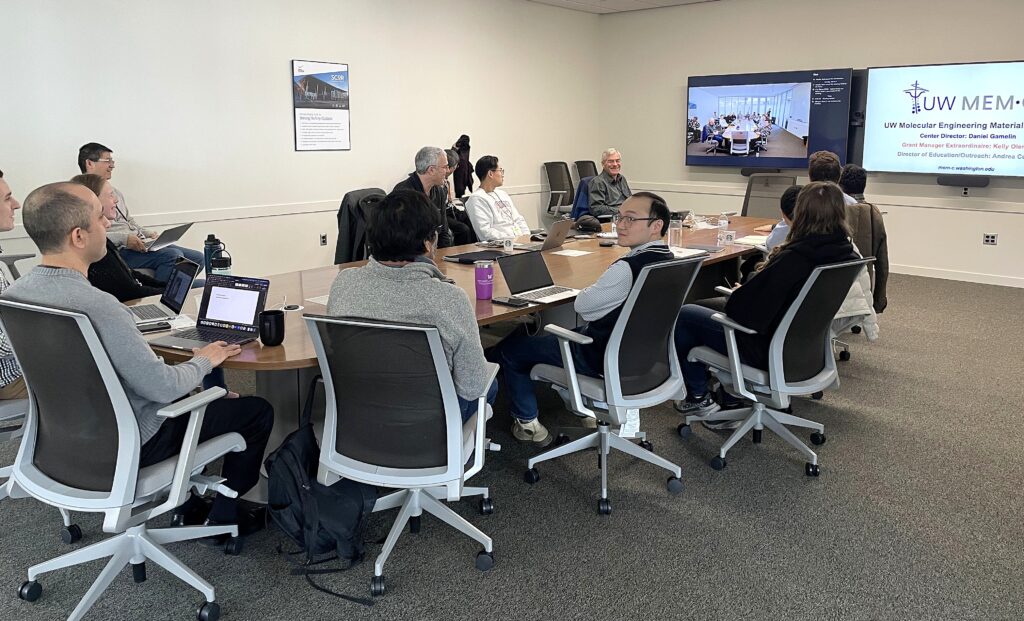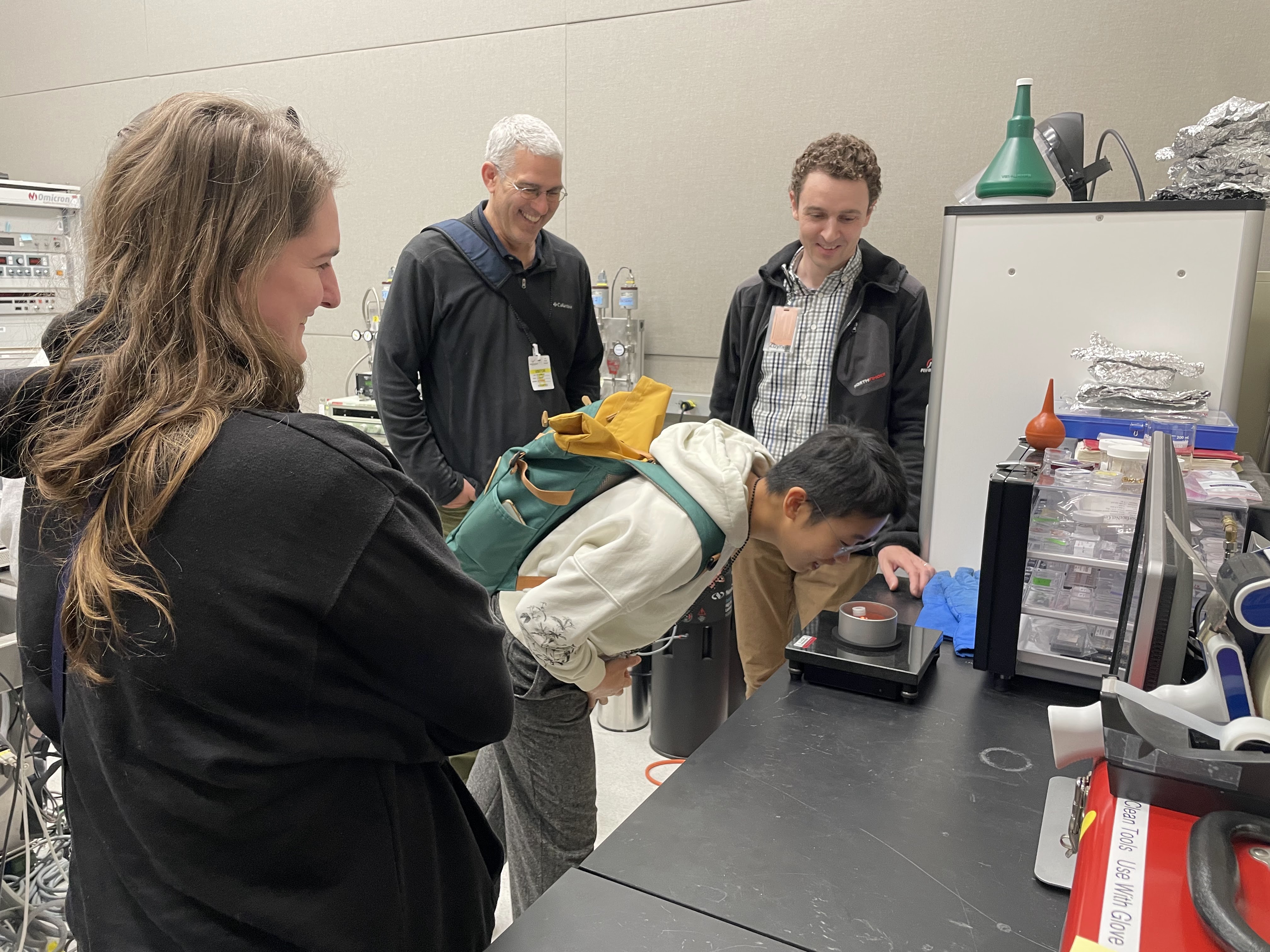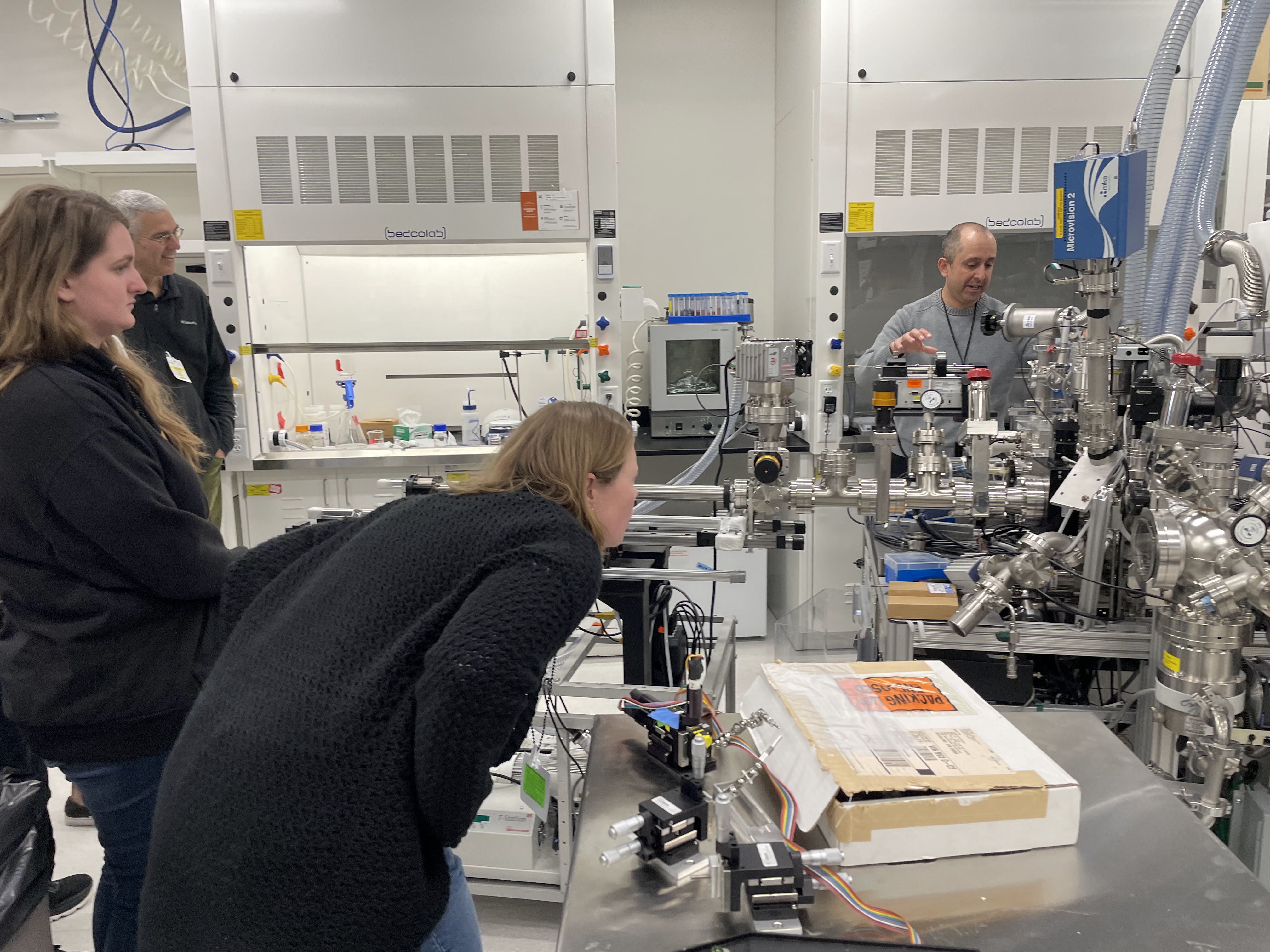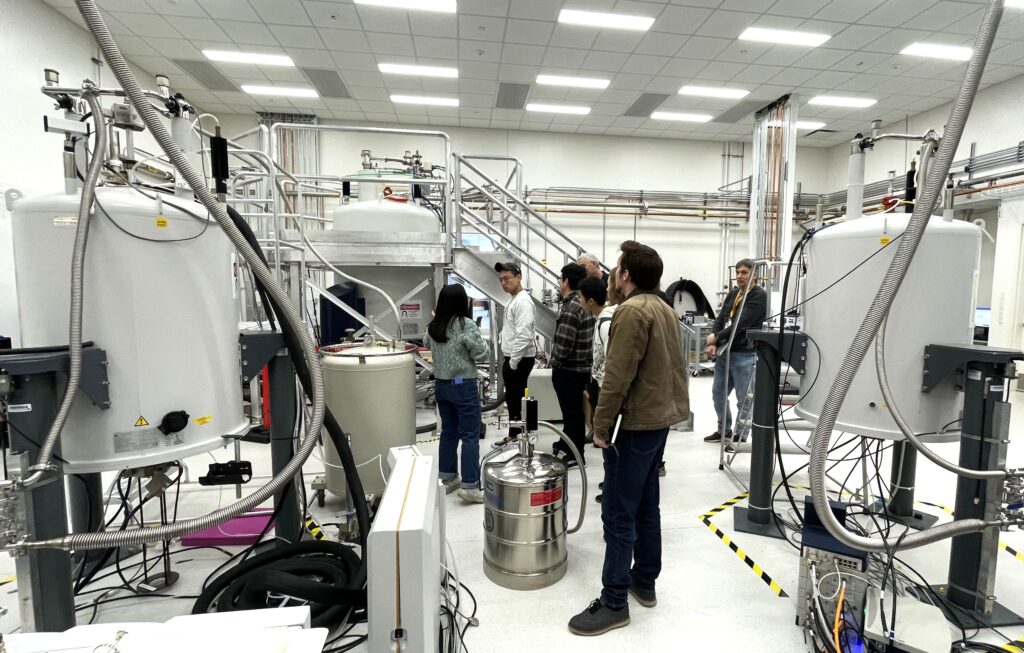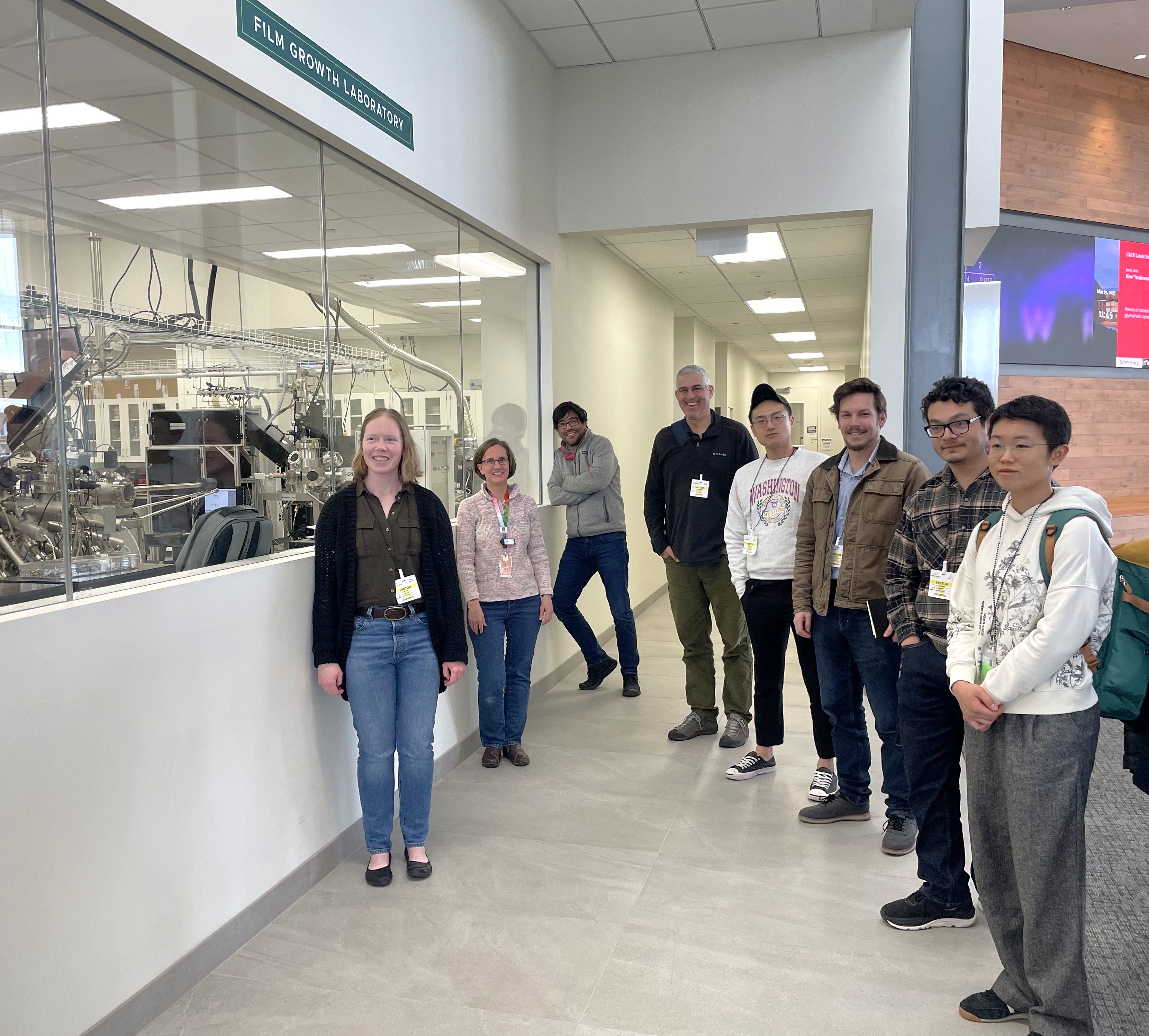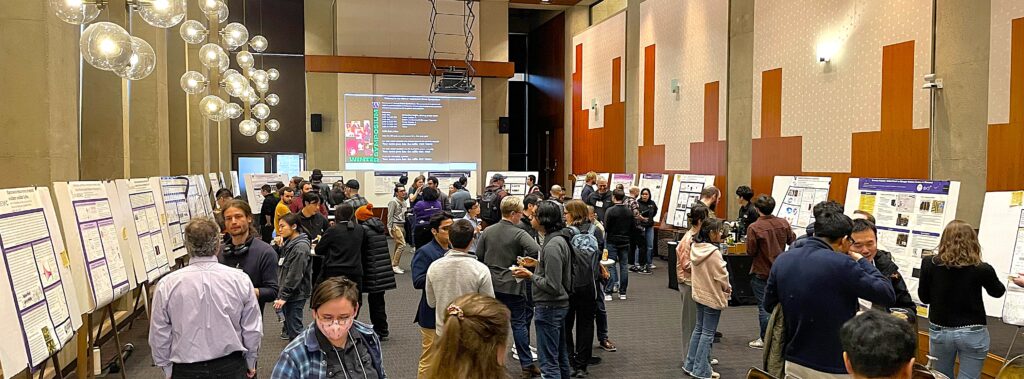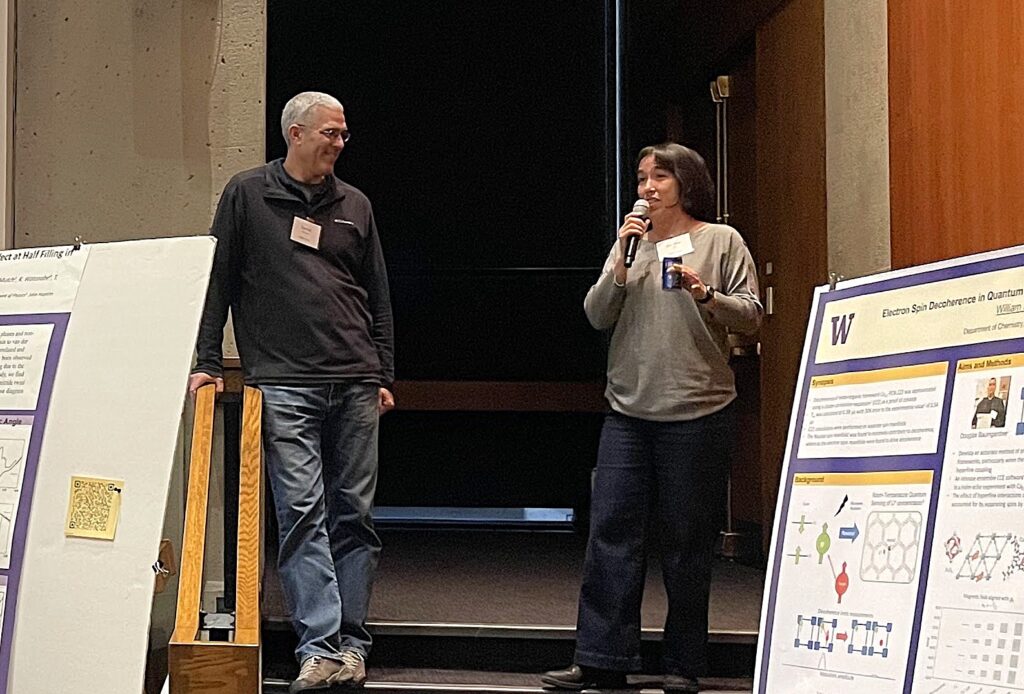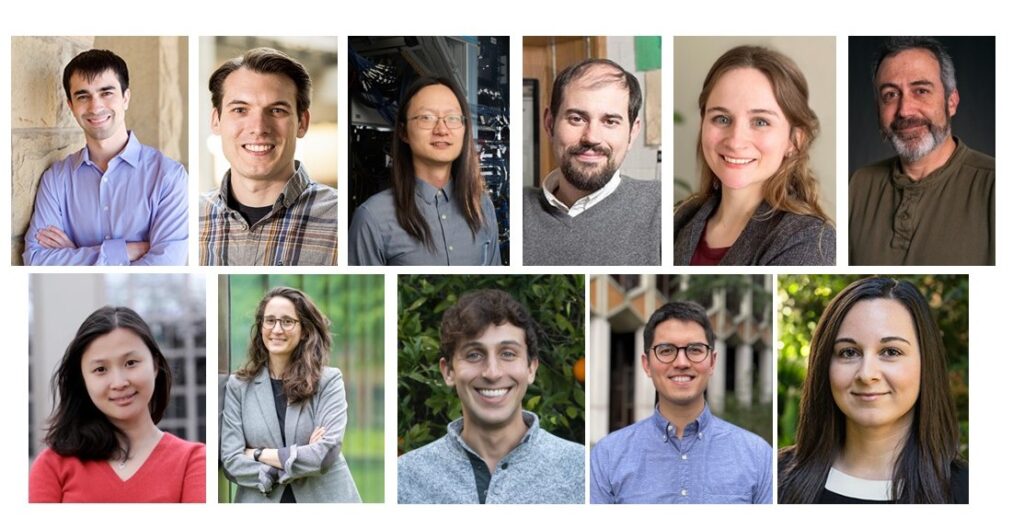Our 2025 MEM-C summer undergraduate researchers are in the last few weeks of their 9-week program! This summer we welcomed 14 amazing students from 10 institutions across the U.S., including 8 students through the Research Experience for Undergraduates (REU) program and 6 from our Partnership for Research and Education in Materials (PREM) partner institutions at the University of Hawai’i – Mānoa and the University of Central Florida. These students are working in MEM-C labs across five departments at UW.
On top of a full summer of hands-on research in which the students have been gaining countless in-lab skills, MEM-C has also supported weekly events and activities for our summer guests. Every week the REU and PREM students meet with our MEM-C Education and Outreach Team (Education and Teaching Fellows Eden Tzanetopoulos and Emily Miura-Stempel and Education Director Andrea Carroll) for a professional development seminar and journal club. Seminar topics include “How to Read a Scientific Paper”, “Writing a Resume and Cover Letter” and “Research Integrity and Ethics with Dr. Malia Fullerton”. During the journal club, the students present a journal article relevant to their summer research and gain practical presentation skills in the process.
MEM-C has organized weekly lab tours for the students, spanning multiple departments across UW (Material Science & Engineering, Biology, Chemistry, Spectroscopy, MEM-C Shared Facilities, Physics, and more!). The summer cohort of students also participated in a 3-session Data Science Training offered by UW Information Technology (UW-IT) where they learned essential coding and machine learning skills. A MEM-C faculty panel was organized for the students, allowing them to ask professors across multiple departments and schools about their journey to becoming faculty and members of an interdisciplinary research center. The REU and PREM students joined the annual MEM-C All-Hands Meeting at UW Pack Forest near Mt. Rainier, where they joined sessions of technical talks, professional development workshops, and an evening poster session to hear MEM-C graduate students and postdocs present their research updates and engage in research discussions. To support a collaborative and inviting summer program, MEM-C co-hosted an afternoon of bowling and hosted a trip to a classic Seattle landmark – The Space Needle! Several summer researchers and mentors are also volunteering their time to help with outreach activities during MEM-C’s annual NanoCamp for 6-8th graders, offered through UW’s Youth and Teen Programs office.
The summer will culminate in students presenting summaries of their work at the Undergraduate Research Program Summer Poster Session. The REU and PREM students have been chipping away at a summer of compelling research that will be sure to wow all attendees at this event. We are so proud of all the progress our students have made and will continue to make throughout the summer.
We would like to especially thank all the MEM-C graduate student mentors and faculty hosts who have made this program possible through their mentorship and support. We would also like to thank the labs and research groups who have hosted tours and Kelly Olenyik for all her help organizing this program.






